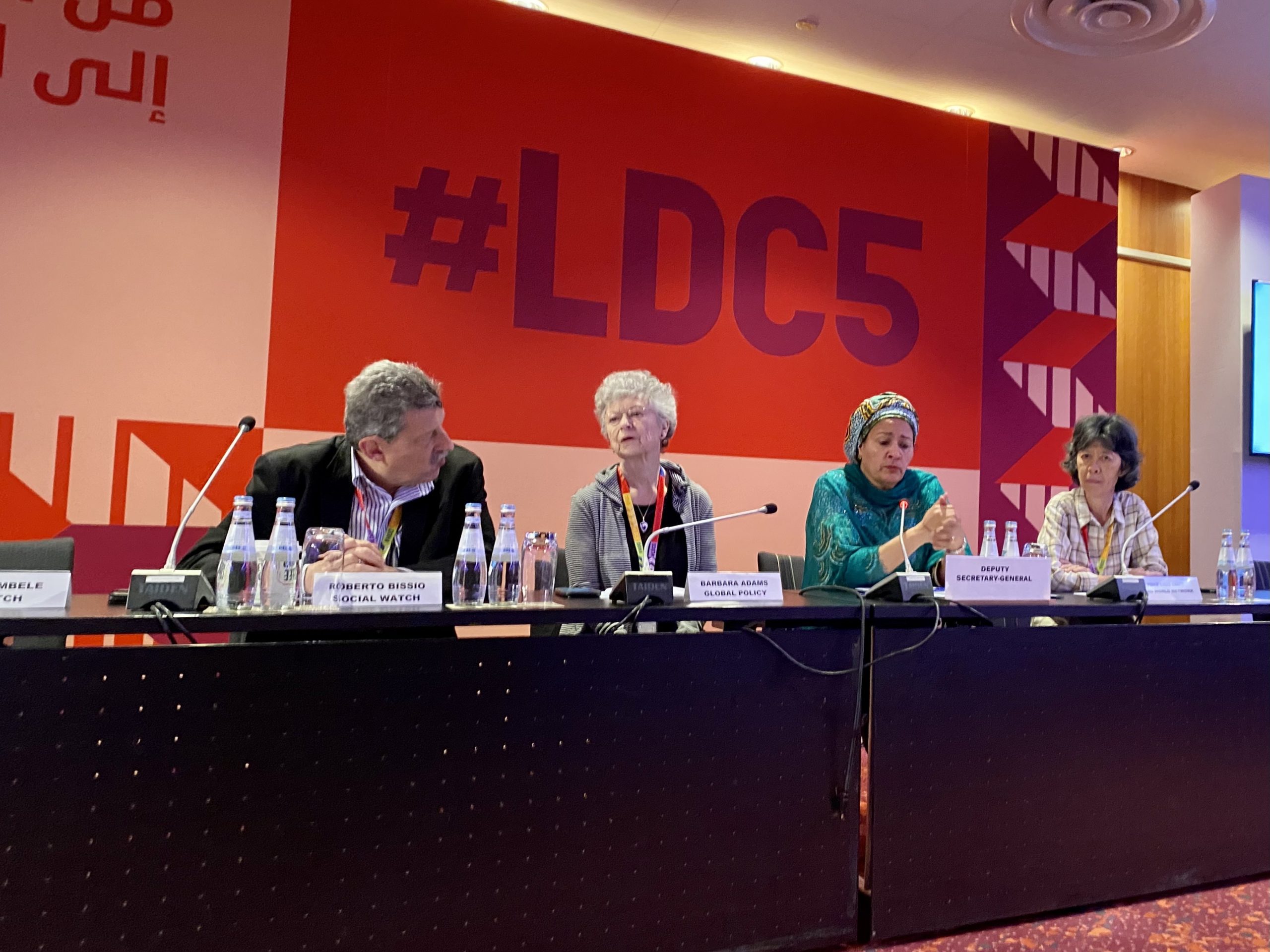Last year, the World Bank warned that 58% of the world’s poorest countries are either grappling with a debt crisis or at risk of facing one.
The rippling effect of the war on Ukraine went beyond Europe, impacting least developed countries, United Nations Deputy Secretary-General Amina J. Mohammed said on Thursday.
“While the epicenter is in Ukraine, aftershocks are being felt around the world particularly in the LDC’s and there has not been a response for that,” the UN official told the press in Qatar.
Mohammed’s remarks came on the last day of the Fifth United Nations Conference on the Least Developed Countries (LDC5), which took place this week.
Held every decade, the event in Doha gathered more than 5,000 participants, including world leaders, policy makers and NGO’s.
The five-day event dealt with issues hindering the prosperity of the least developed countries, including the ongoing effect of the Covid-19 outbreak and Ukraine crisis.
Mohammed noted that the UN’s Sustainable Development Goals (SDG’s) are failing in most least developed countries, with plenaries at the conference in Doha stressing the need to tackle the crises affecting the nations.
According to the UN, there are 46 least developed countries.
“There has been substantive engagement, this has not started today, it has been decades old and we’re hoping to go into a year where we will stop to take on where we are on the SDG’s,” Mohammed said.
The UN official noted that the agency is keen on the outcomes of the conference and the measures taken after it to address the issues affecting the targeted nations.
“We are very keen on what happens after this conference,” Mohammed added.
The Covid-19 outbreak struck global economies and highlighted the many vulnerabilities of least developed countries, which have yet to recover from the pandemic three years on.
The war in Ukraine also contributed to the turmoil of crisis-hit nations which have witnessed widespread poverty. According to the UN, 33.6% of the least developed countries’ populations lived below the international poverty line even before the pandemic.
The war has threatened global energy and food supply, hitting least developed countries’ the hardest given their independence on commodity imports from both Russia and Ukraine.
Meanwhile, solutions for the debt crisis were a key area of focus during many meetings. The matter was also highlighted in the opening speech of Qatar’s Amir Sheikh Tamim bin Hamad Al Thani.
Addressing world leaders, the amir called for the need to direct attention to its impact on least developed countries.
The Qatar leader added that the debt crisis has “crippled the course of growth and development in these countries,” praising global initiatives placed to tackle it.
“Debt repayment exacerbates poverty and prevents development projects’ implementation,” the amir said.
Between 2011 and 2019, the debt service of least developed countries jumped from $10 billion to $33 billion, as per UN figures.
In 2020, the least developed countries’ external debt service reached $31 billion, with previous expectations to hit $50 billion, representing an increase of more than $20 billion in comparison to the pre-pandemic average.
Last year, the World Bank warned that 58% of the world’s poorest countries are either grappling with a debt crisis or at risk of facing one.







